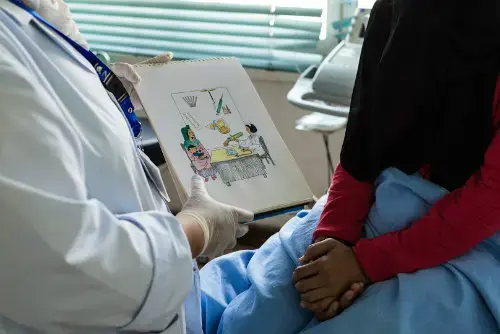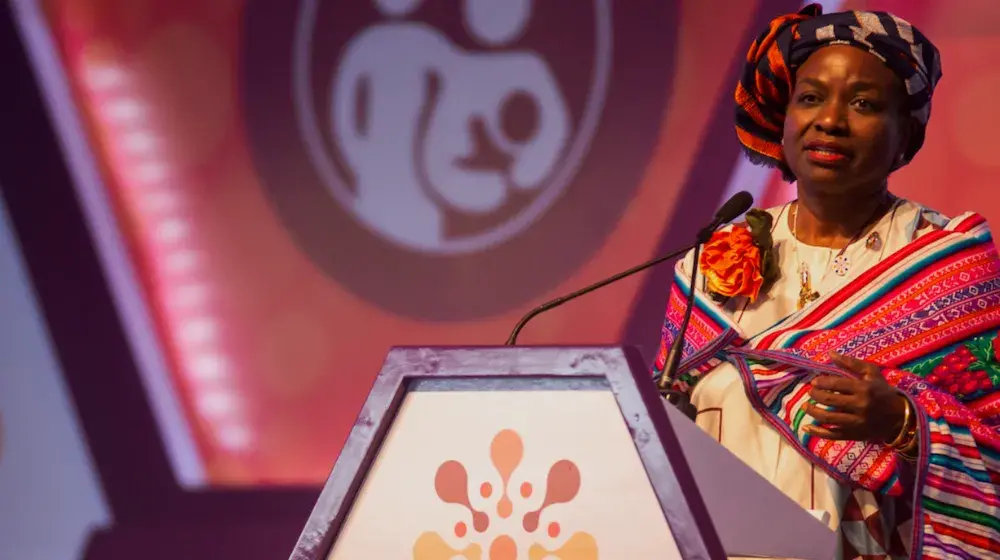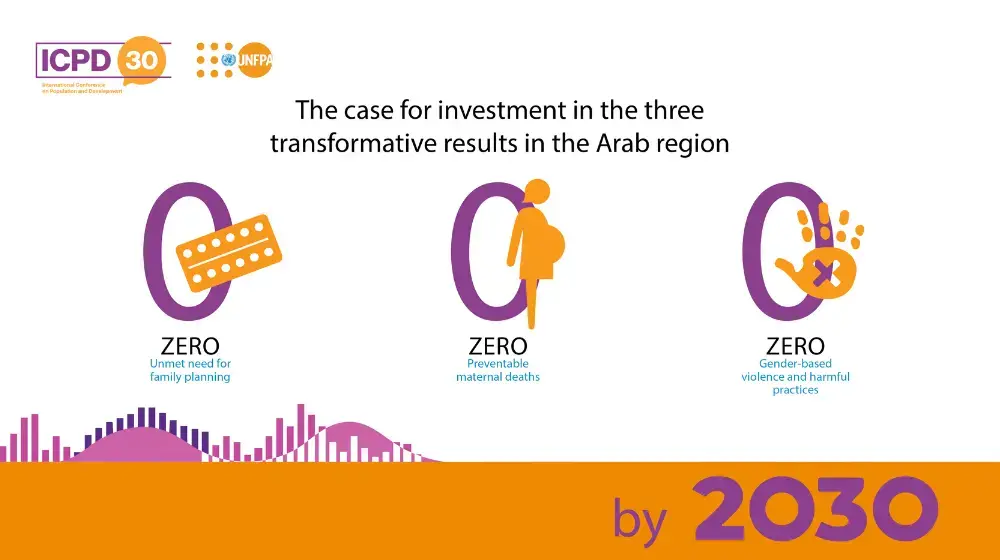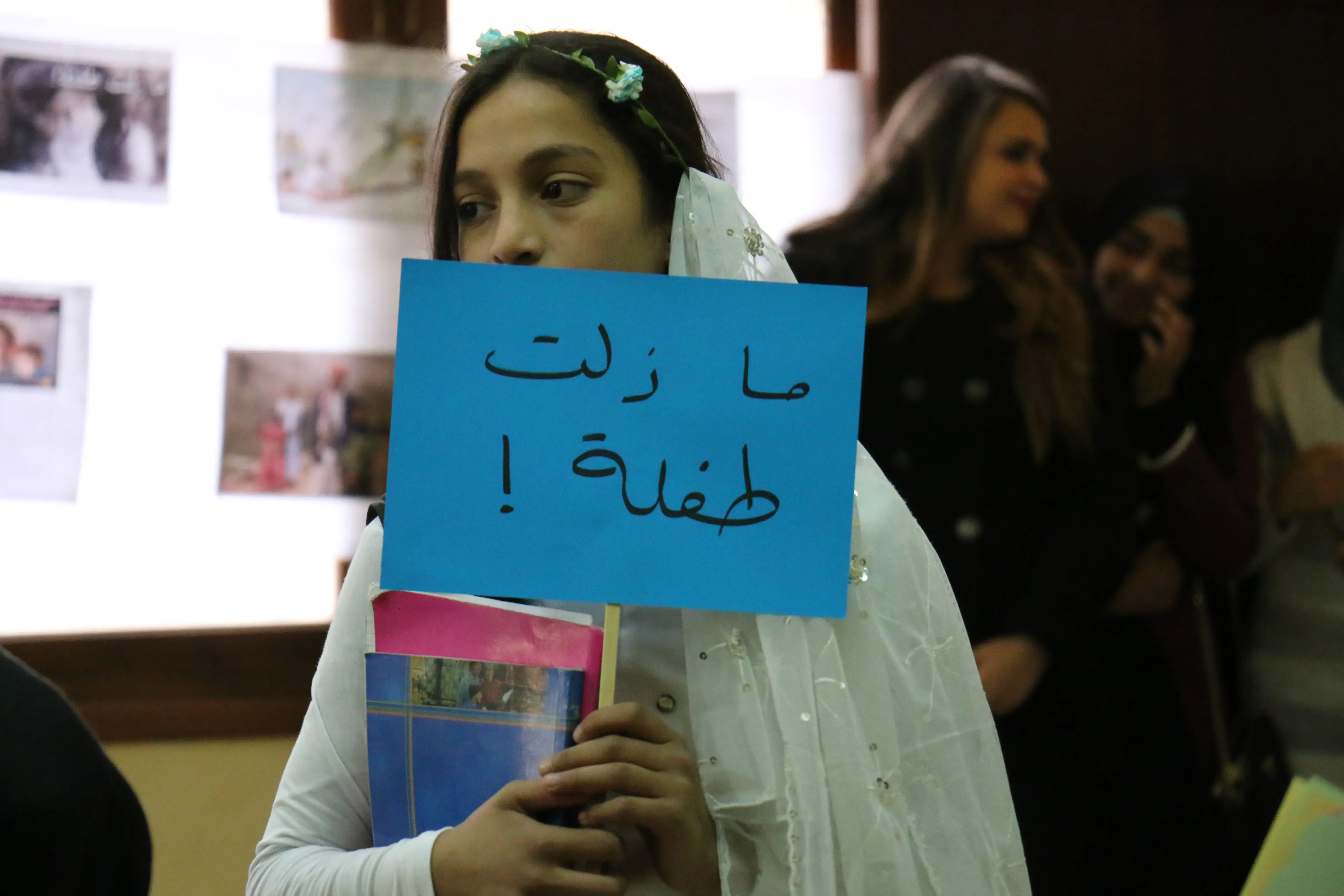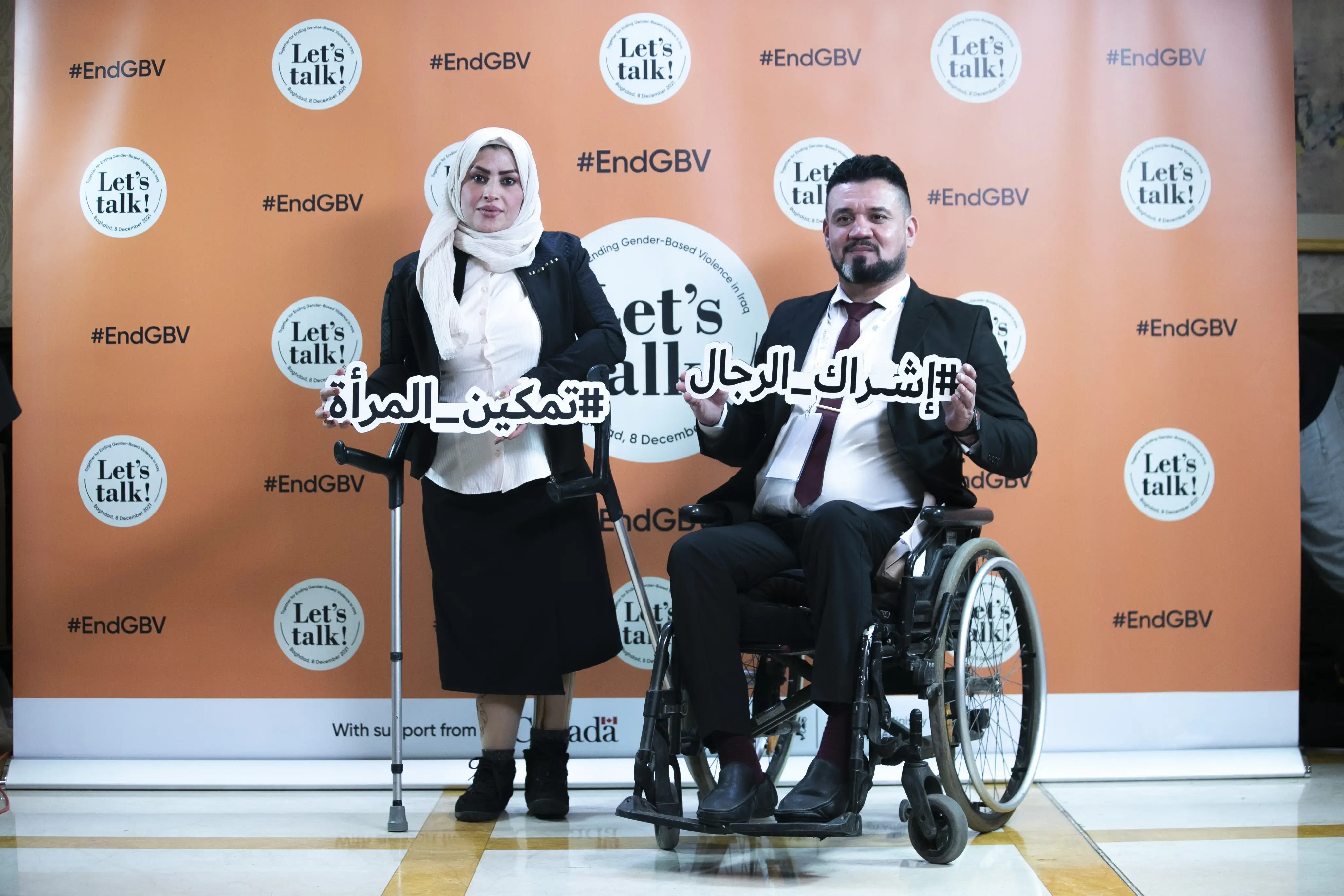Family planning is the information, means and methods that allow individuals to decide if and when to have children. This includes a wide range of contraceptives – including pills, implants, intrauterine devices, surgical procedures that limit fertility, and barrier methods such as condoms – as well as non-invasive methods such as the calendar method and abstinence. Family planning also includes information about how to become pregnant when it is desirable, as well as treatment of infertility.

Access to safe, voluntary family planning is a human right. Family planning is central to gender equality and women’s empowerment, and it is a key factor in reducing poverty. In the Arab region, the unmet need for family planning ranges between 10 and 15 per cent. This arises for reasons ranging from a lack of access to information or services to a lack of support from their partners or communities or disruptions to services through conflict or crises. This threatens their ability to build a better future for themselves, their families and their communities.
Evidence has shown that the availability of sexual and reproductive health and family planning services, and protection from gender-based violence, save lives in emergencies. In humanitarian settings, the demand for contraception is high, with many women and couples expressing the desire to space or limit pregnancies in times of instability and uncertainty. The collapse of health systems including interrupted medical supply chains, the destruction of health facility infrastructure, death or displacement of health care personnel and a lack of access to functional health facilities, can lead to increasing unmet need for family planning.
Family planning saves lives
Contraceptives prevent unintended pregnancies, reduce the number of abortions, and lower the incidence of death and disability related to complications of pregnancy and childbirth. If all women in developing regions with an unmet need for contraceptives were able to use modern methods, maternal deaths would be reduced by about a quarter, according to recent estimates.

Additionally, male and female condoms, when used correctly and consistently, provide dual protection against both unintended pregnancy and sexually transmitted infections, including HIV.
Increasing knowledge about and access to modern contraception among adolescent girls is a crucial starting point for improving their long-term health. It is also essential for improving maternal and newborn health. In the Arab region complications from pregnancy and childbirth are the leading killer of adolescent girls aged 15 to 19 years. Their babies also face a higher risk of dying than the babies of older women. Yet adolescents and young adults face enormous barriers to accessing reproductive health information and services.
Family planning empowers women
Access to contraceptive information is central to achieving gender equality. When women and couples are empowered to plan whether and when to have children, and how many, women are better able to complete their education. Women’s autonomy within their households is also increased and their earning power is improved.
Cumulatively, these benefits contribute to poverty reduction and global development. These benefits were recognized in the Programme of Action of the International Conference on Population and Development (ICPD), which called for ‘the right of men and women to be informed and to have access to safe, effective, affordable and acceptable methods of family planning of their choice.’
Family planning brings economic benefits
There are clear economic benefits to investing in family planning. For every additional dollar that is invested in contraception, the cost of pregnancy-related care will be reduced by about three dollars, according to recent projections by UNFPA's partner Guttmacher. A study commissioned by UNFPA across 12 Arab countries revealed a five-fold return for every dollar invested in ending the unmet need for family planning and preventable maternal deaths. In terms of socioeconomic benefits, achieving universal access to quality sexual and reproductive health services is estimated to yield returns of $120 for every dollar invested, according to some estimates.
Family planning can also help countries realize a ‘demographic dividend’, a boost in economic productivity that occurs when there are growing numbers of people in the workforce and falling numbers of dependents.in direct health-care costs. In order for 12 countries in the Arab region to end unmet need for family planning and end preventable maternal deaths by 2030, an investment of an additional $7.0 billion is needed from 2022 to 2030.
Overcoming barriers to family planning
Women and girls in the Arab region face serious barriers to using contraceptives. Of the 91 million women of reproductive age (15-49 years) in the Arab Region, 13.6 million women have an unmet need for contraception. The contraceptive prevalence rate is less than 60 per cent in two-thirds of the Arab countries, and only Morocco and Egypt have achieved the Sustainable Development Goals target of 75% for demand for family planning satisfied by any modern method among females aged 15-49 years. Arab countries face a range of challenges in addressing the unmet need for family planning heightened by the changing political instabilities faced. Low accessibility to health and social services, inadequate skilled human resources, and health financing gaps have exacerbated the vulnerability of women, girls, and other marginalized populations. Investment in family planning is often curtailed by emergencies, conflicts and other socio-political barriers in the region.
Common reasons why women do not use reliable, modern contraceptives include logistical problems, such as difficulty traveling to health facilities or stock outs at health clinics, and social barriers, such as opposition by partners or families. Lack of knowledge also plays a role, with many women not understanding that they are able to become pregnant, not knowing what contraceptive methods are available, or having incorrect information about modern methods.

Poorer women and those in rural or conflict-affected areas often have less access to family planning information and services. Certain groups – including adolescents, unmarried people, the urban poor, rural populations, sex workers and people living with HIV – also face additional barriers to family planning. This can lead to higher rates of unintended pregnancy, increased risk of HIV and other sexually transmitted infections, limited choice of contraceptive methods, and higher levels of unmet need for family planning. Particular attention must be paid to promoting their reproductive rights, access to family planning, and other sexual and reproductive health services.
UNFPA at work
With its current strategic plan, UNFPA aims to achieve three transformative results: ending maternal deaths, ending unmet need for family planning, and ending gender-based violence and harmful practices. Providing family planning information and services is a critical part of these efforts.
UNFPA works to support family planning by ensuring a steady, reliable supply of quality contraceptives, strengthening national health systems, advocating for policies supportive of family planning, and gathering data to support this work. UNFPA also provides global leadership in increasing access to family planning, by convening partners – including governments – to develop evidence and policies, and by offering programmatic, technical and financial assistance.
UNFPA works at every level to improve access to family planning and empower individual choices. This includes governments, NGOs, community-service organizations, faith-based organizations, youth groups and the private sector to strengthen community-based and youth-friendly reproductive health services, and to provide these services in humanitarian crises.

UNFPA has supported the League of Arab States to develop their 11-year strategy on Maternal, Child and Adolescent Health (2019-2030), to ensure that every woman can access family planning services, and choose their preferred method.
UNFPA has also supported the development of the Arab strategy for a health-friendly budget, a collaborative effort between the League of Arab States, UNFPA, and WHO. This strategy aims to support health budgets and mainstream health considerations into all policies among Arab League member states. Only by ensuring an adequate budget for the health sector the domestic financing of family planning can be secured.
Through its UNFPA Supplies Partnership, UNFPA works with partners and governments to ensure access to a reliable supply of contraceptives, condoms, and medicines and equipment for family planning, the prevention of sexually transmitted infections and maternal health services. UNFPA also works to integrate family planning services into primary health care, so women and girls are able to access information and contraceptives at any health facility.
UNFPA is a key partner in the Family Planning 2030 (FP2030) global partnership, which aims to achieve voluntary modern contraceptive use by anyone who wants it. This contributes towards a future where women and girls everywhere have the freedom and ability to lead healthy lives, make their own informed decisions about using contraception and having children, and participate as equals in society and its development. To meet this goal, and achieve the Sustainable Development Goals, UNFPA is focusing on four key areas:
Investment in adolescents and youth
- Strengthening supply chains so that contraceptives reach those who need them
- Ensuring that family planning services and supplies have sustained funding support
- Improving the quality of care in family planning service
As the world changes all around us, achieving universal access to family planning takes on new urgency. The UNFPA Strategy for Family Planning, 2022–2030, serves as a call to action for the importance of family planning and its transformational power in a diverse and changing world.
Updated 29 July 2024

